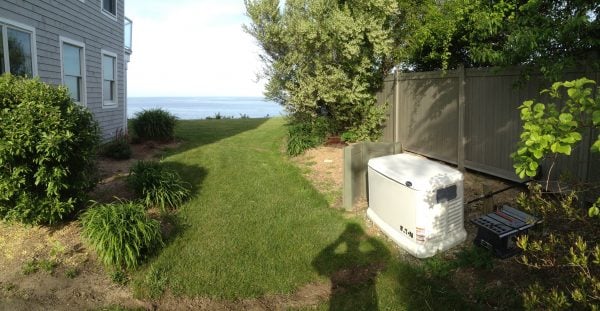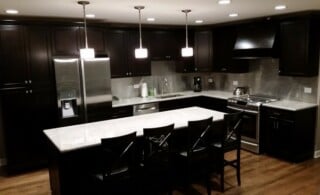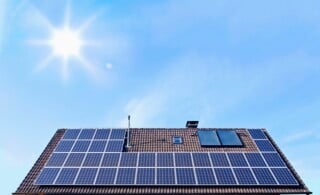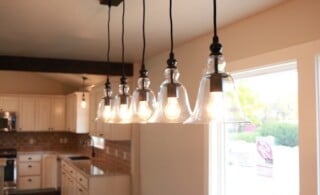
Thousands of people die each year in their own home, many of them elderly, because of hypothermia. Admittedly, some succumb to hypothermia trying to save on heating bills while the home still has power, but many die during a winter storm where the home has experienced a power outage. During these power outages, emergency home generators are a great asset: It keeps residents warm, food preserved, and the lights on. While a small electric generator can be bought for a few hundred dollars, one that will provide power to a house (in whole or part) is a big investment. With many different types of emergency home generators on the market, it’s wise to understand the pros and cons of each type before you buy.
Types of Emergency Home Generators
- Diesel and Gas Generators: Diesel generators or gas generators are generally used to power or provide light for work sites. Although they aren’t designed to provide power to a home, with up to 6000-watt outputs, the higher end models can provide some relief during a power outage. A gas or diesel generator is okay for plugging in a few lights or appliances for a few hours; just make sure to keep the generator outside as they produce carbon monoxide (an odorless gas that is very dangerous). The nice part about them is that they are portable and can be used for a number of tasks away from the home. The price, which will be less than most home generators, isn’t bad either.
- Natural Gas Home Generators: These are the big boys; some can provide power to an entire house indefinitely. They run on either natural gas or liquid propane that is piped into the house from a municipal plant. This kind of emergency home generator is permanently fixed to the outside of a house, not unlike a central air conditioning unit. If your concerns are strictly to provide power to your home during outages, then these are the way to go. Since they have a direct gas line hooked into them, you don’t have to worry about filling tanks. They are also set to turn on automatically when your power goes out, so you don’t even have to turn them on.
- Select Circuit: As the name implies, a select circuit home generator will automatically provide power to some, but not all, of your home’s electric devices. The ones that get the power are determined before installation, and only those are connected to the generator. This saves money initially because the generator doesn’t have to be as large, and it will save money as the machine is running as well by saving fuel. These will keep lights and appliances in important rooms (like the living room and kitchen) functioning for as long as the blackout persists.
- Whole House: Basically the King Kong of home generators, these are expensive to buy and to run. If you have the means, however, and want to be sure that everything in your house runs for as long as necessary, these are for you. They have liquid cooled engines like an automobile, and can produce up to 45 kilowatts of energy at a time. Whole house generators cost from the $1,000s to the $10,000s, but owning one will ensure that you will never be left in the dark. Ever.
Ready to start your emergency generator?
Find ProsEmergency Home Generator Installation
You might think that a home generator is just a big an appliance that you can plop down in your basement and hook up to your electrical system. In truth, you need a flat, load-bearing surface with adequate water drainage and ventilation. Some homes may need more work than others to responsibly install a generator but rarely is it a project for the homeowner him or herself. Whether to ensure your generator serves your home for a long time or to ensure the basic safety of your household, do yourself a favor and find a reliable, experienced contractor for your emergency home generator installation.
 Electrical Wiring Project Checklist
Electrical Wiring Project Checklist  Adding a Home Wet Bar
Adding a Home Wet Bar  Upgrade Your Home Life
Upgrade Your Home Life  Tax Credits & Solar Shingles: Is It Finally Time to Swap to Solar Power?
Tax Credits & Solar Shingles: Is It Finally Time to Swap to Solar Power?  Kitchen Lighting
Kitchen Lighting 

Are You Familiar With This Topic? Share Your Experience.